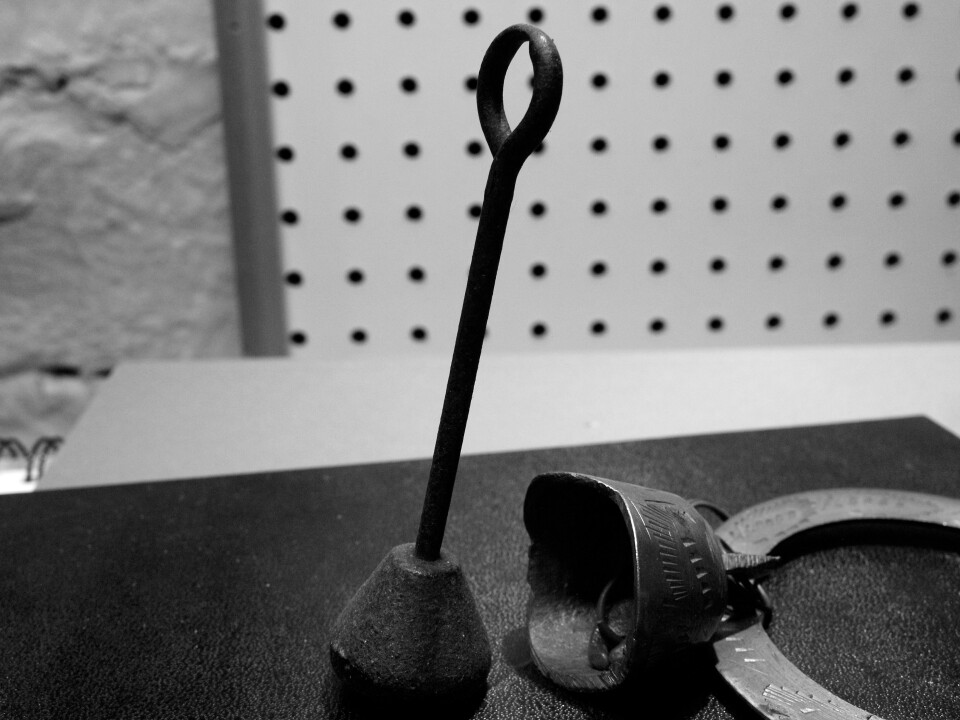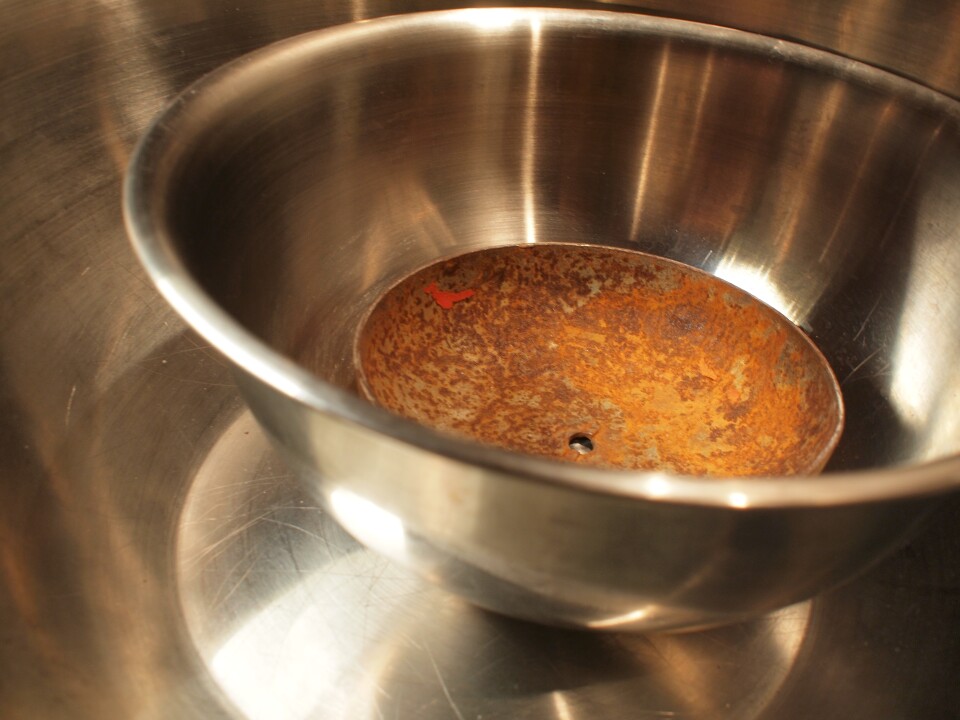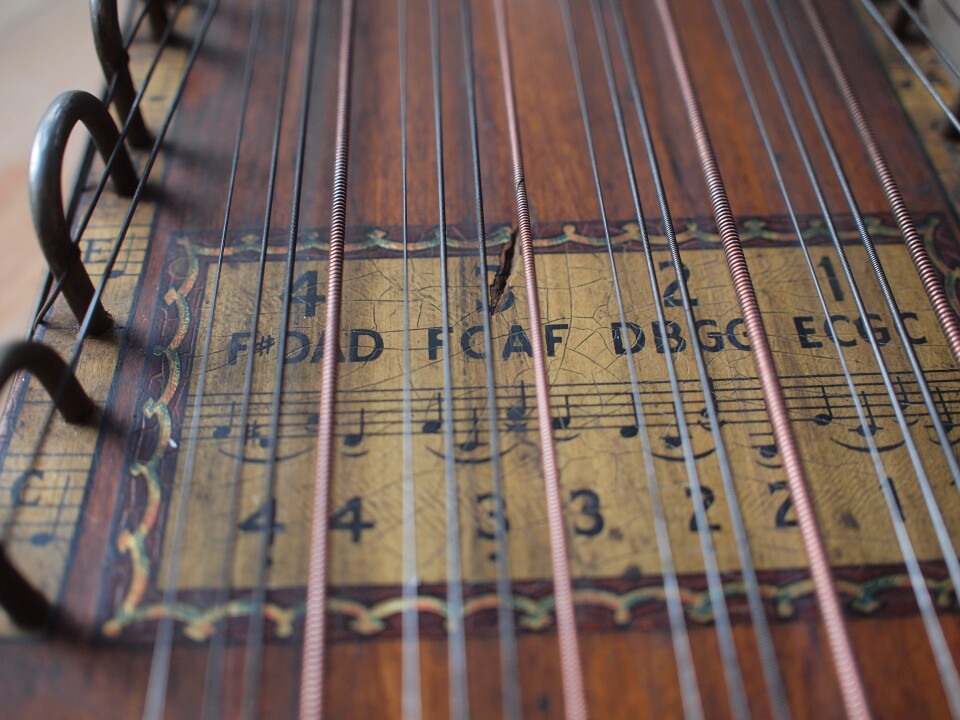Zoe Lister-Smith directed “Band Aid,” a hit at this year’s Sundance Film Festival that just got picked up for distribution; Fox's new “24” reboot is being criticized because the villains on the series are from the Middle East; Andrew Lockington talks about his untraditional score for the new movie, “The Space Between Us.”
Zoe Lister-Jones and the female power behind 'Band Aid'
The movie “Band Aid” is about a couple at an unhappy juncture in their marriage. They fight — a lot— over everything from the unwashed dishes piled up in the sink to personality traits. Therapy is only getting them so far. So what do they do? They turn their conflicts into songs.
In this scene the main characters – played by
and
– discuss the things that annoy them about each other.
The two take those tense moments and actually make pretty great music out of it. Lister-Jones is on bass, Pally is on guitar and Fred Armisen, who plays their bizarre neighbor, is on drums.
“Band Aid” premiered at the Sundance Film Festival and was picked up for distribution by IFC.
It's just one of the projects that Lister-Jones and Pally each have coming out this year. She's on a TV show on CBS called "Life in Pieces," and he'll be be in a new show on Fox called "Making History," which starts in March.
The Frame host John Horn caught up with Lister-Jones and Pally the day before the Sundance premiere of "Band Aid."
Interview Highlights:
On the theme of rupture and repair in "Band Aid":
PALLY: I think that's a fair way to describe marriage. I've been married six years now and I feel like it is that, because you're growing and maturing and living a life that you're sharing with someone else. It is elastic. You know when The Flaming Lips go on tour and Wayne Coyne gets in that plastic bubble? That's like what marriage is. You can push out a little bit away, but if you're committed both to being in that bubble together, then you're going to roll over the crowd together.
LISTER-JONES: We've both been with our partners for a very long amount of time — for relatively young people. I've been with my husband for 13 years. I do think it is really interesting. I was interested in seeing the ways in which couples fight because I think that is also often a testament to the way that they love. So many of those fights are about fighting to stay together.
On making the film with an all-female crew:
LISTER-JONES: I was raised by a feminist. So I think those values are a big part of who I am as a person. I think I was also raised looking at the world through a lens that was specifically targeted at misogyny. Being an actress and also being a filmmaker, [movie] sets are so predominantly male. And it's something that I've always been very aware of. I also am pretty aware of the dynamics between men on set and the few women who are represented there, and what it means to be a woman on a predominantly male crew. I wanted to see what it would be like if that dynamic was totally subverted. So from top to bottom, there was not one man on the crew. Adam was the only man on set many days.
Fox's '24' reboot criticized for rehashing Muslim stereotypes
For many fans of Fox's long-running show "24," the show and its lead character, Jack Bauer, are inextricably linked.
But after the Super Bowl on Sunday night, Fox will introduce TV viewers to a new hero: Eric Carter, played by Corey Hawkins.
"24: Legacy" is the reboot of "24," the long-running series in which Kiefer Sutherland's character would foil international terror plots (often orchestrated by Muslim terrorists) all in the course of one day. And while Jack Bauer isn't a part of the new version of "24," the familiar Muslim villains are.
The show will premiere just a week after President Trump’s executive order that temporarily bans travel from seven Muslim-majority countries.
"24: Legacy" was filmed before anyone knew that an executive action like this could be on the horizon, but the fact that the bad guys in the reboot are radical Muslim operatives has reignited the same criticism that the original "24" faced over its depictions of Middle Easterners.
IndieWire TV critic Ben Travers describes the spinoff as the "reboot of the ticking-clock action franchise we might want ... but do not need."
Interview highlights:
On the decision to revisit themes of past seasons of '24,' with plots centered on Muslim or Middle Eastern terrorists
Honestly, I don't fully understand it. It doesn't really seem fit for the time. It's an issue they've dealt with over and over again. Even within the story, there's an opportunity for them to talk about domestic terrorism and more pertinent issues to today that wouldn't be as sensitive or as rough-edged for people to absorb, especially after the Super Bowl. But it's something we're so familiar with, with that kind of sensation of creating the "other," of creating someone who looks different and acts different and therefore is the bad guy ... I feel like they just went back to a tried-and-true formula and decided not to worry about it.
On the more progressive elements of the new series
One of my favorites was the fact that during the initial attack [that opens the series], Corey Hawkins' wife actually shoots one of the terrorists. So she has this moment where she takes over and does her own thing and she seems like she can handle herself pretty well. And then sadly she's kind of sidelined for the next few episodes ... I also liked that they made the star an African American. Corey Hawkins is a great actor, we've seen him in 'Straight Outta Compton.' He does a great job. He seems to handle the role very well. The only problem is that there's just not a lot going on to distinguish the character, especially when you're trying to overcome the idea of not having Jack Bauer anymore.
The Frame reached out to the Fox Network for comment, but they declined our invitation.
Composer Andrew Lockington's otherworldly score for 'The Space Between Us'
“The Space Between Us” is part sci-fi adventure, part teen romance. It’s about a boy named Gardner who was born on Mars to an astronaut posted there, and who comes to Earth for the first time when he’s 16.
The film is directed by Peter Chelsom, who hired Canadian composer Andrew Lockington to create the music. Lockington took this extreme version of the fish-out-of-water story as inspiration for the basis of his score.
“One of the things Peter said to me is, Let’s go weird,” Lockington said. “Let’s go way outside the box. But then let’s work our way back, and make sure that we’re staying true to the emotional journey of what we’re trying to do.”
“Interestingly, I did a film two years ago called ‘San Andreas.’ There’s a scene in the film where the Golden Gate Bridge ... the wires start snapping. And I thought, Wow, wouldn’t it be cool if we incorporated that into the score and bashed a piano up and recorded it with the wires snapping and everything?”
“I’m not sure I’m allowed to go back to Home Depot anymore, ’cause when my assistant and I showed up, [we had] huge bolt-cutters and face masks and gloves. There was a lot of suspicion, appropriately so. I kind of got halfway through destroying this piano, and I went into the studio and I thought, I’ll just start playing this decrepit, dying piano. And I realized it was an amazing instrument. So, from there, and especially after talking to Peter about the theme of ‘The Space Between Us,’ I thought, you know, let me start looking around and see ... maybe there’s some instruments there that the world has overlooked.
“A cello bow that I bought is the only thing that’s actually new. One of my programmers, Michael White, is a scientific genius, and he kind of taught me [to] walk around with a bow and just bow everything you can — see what makes sound.”
“There’s this, which we got at a junkyard on a walk one afternoon — I think it’s an old school bell from the 1800s. It has remnants of little bits of red you can see here, in the only places there isn’t rust.”

“This is a ice cream dish that a friend of mine got at a flea market in Paris. I think it’s [from] around the 1800s. And it makes all sorts of cool noises when you bow it.”

“I have no idea what this is called. It’s sort of like a half-ukulele, half-harp. I’m told that it was sold door-to-door in the 1800s. I bought it for $50 at a flea market. I have no idea how you’re supposed to play it, but I kind of figured out a way to. And it’s actually a big part of the score.”

“[There's] a cue called ‘First Skype.’ And one of the things I do when I had these different things ... before I’d actually learned my way around any of these salvaged metal and instruments and things, I would turn the mic on and press record. I’d record hours, just all my screwing around, just start playing.”
“At the house that I rented in Los Angeles, where I set up my studio ... this had actually been tossed aside outside. I don’t know if it was a remnant of a party or something. But one of the things I always do, per my idea, was bow everything. So this is some sort of cheap wine glass, I think. But I had a cue, actually, that I began this idea of just this rhythm, and ‘Coming to See You’ began that way, the whole idea.”

“I hope that when the audience sees the film, they are just moved by the emotion of what they’re hearing and what they’re seeing as one experience, and they’re not distracted. That was probably the biggest challenge: How do I do something cool, but stay true to the mission of the score? Which is to tell a parallel telling of the story, and be the emotional heart of what we’re seeing and experiencing.”




